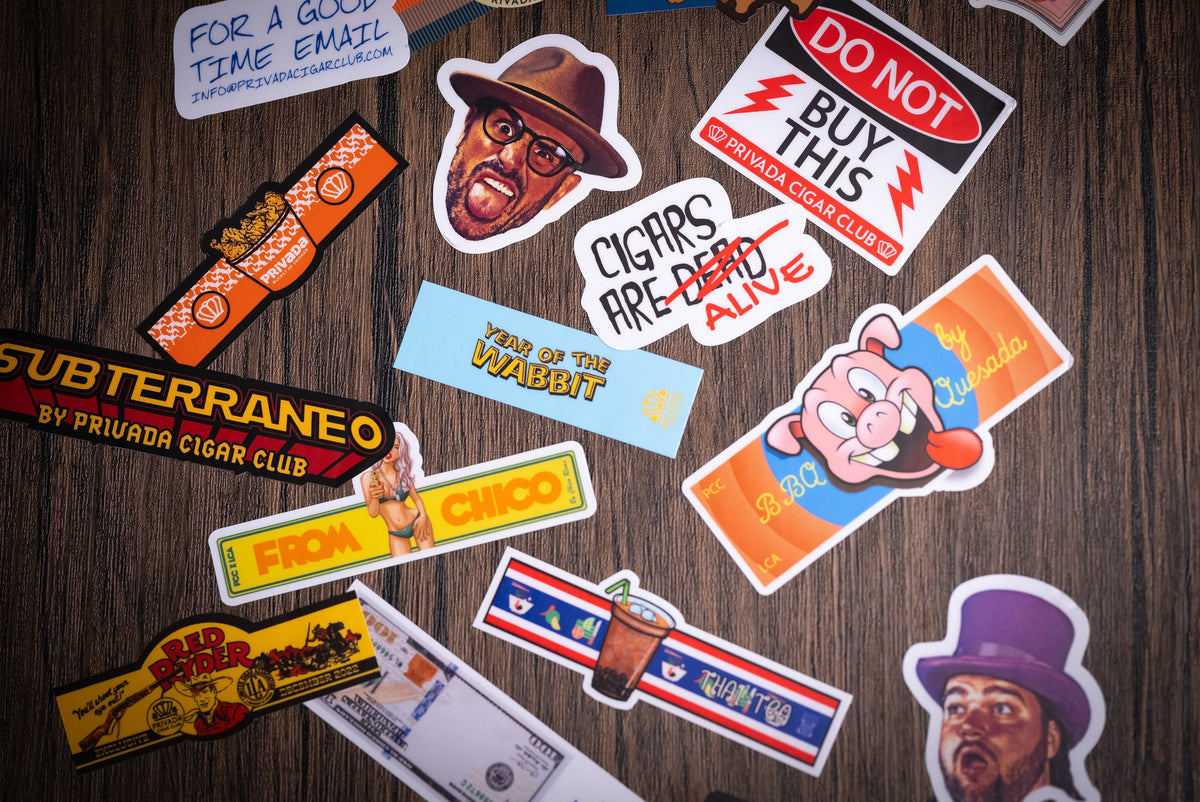
California & Texas Cigar Laws: How S.B. 1313 and Flavor Bans Hurt Premium Cigars | Privada Cigar Club
|
|
Time to read 3 min
|
|
Time to read 3 min
Introduction
Cigars have always been about more than smoke. They’re culture, ritual, art, and story—rolled up in leaves and fire. But lately, lawmakers in California and Texas have decided they know better. California’s ban on non-flavored tobacco (lumping handmade cigars in with candy vapes) and Texas’s new S.B. 1313 law (restricting anything in marketing that might look fun) are squeezing our world into something smaller, flatter, and less human.
These laws aren’t stopping kids from sneaking candy-flavored disposables. They’re stripping art from premium cigars, punishing manufacturers, and making life harder for cigar lovers who just want to enjoy a Friday night smoke. And here’s the kicker: while California clearly meant to target cigars in their ban, Texas might not have even aimed this at us—but we’re caught in the crossfire anyway.
At Privada, where every cigar is limited and every band tells a story, the hit is personal. What was already rare is about to get rarer. And that’s why every cigar smoker—whether you’re in California, Texas, or anywhere else—should care.
In California, the intent is clear: premium cigars are included, no matter how absurd it seems. The law doesn’t distinguish between disposable vape pens and a handmade cigar rolled by artisans whose families have been in this craft for generations. Overnight, premium products with no flavor additives were swept into a ban designed to target fruit-flavored nicotine pods.
For smokers, that means fewer choices, higher hurdles, and even less access to cigars that were already limited. For manufacturers, it’s insult stacked on injury: the same people who have spent their lives perfecting this craft are now forced to rework packaging, distribution, and compliance for a problem that never involved them.
Texas is murkier. Was this really intended to target premium cigars, or was it written to rein in candy-colored vape shops and cheap cigarettes? The language doesn’t say, and that’s the danger.
S.B. 1313 bans anything in cigar marketing that resembles food, cartoons, or celebrities. That’s devastating for an industry that thrives on creativity and storytelling. Cigar bands and boxes aren’t just labels—they’re part of the ritual, the connection, the memory. A Privada drop that nods to pop culture or uses bold art to mirror the flavor profile now risks being seen as “marketing to kids.”
It’s like telling a chef he can’t plate with garlic because someone might mistake it for candy.
For cigar lovers, these laws mean less. Less variety, less art, less freedom. The packaging you’ve come to look forward to—the playful nods to food, the nostalgic art, the cultural references—are all suddenly under scrutiny.
And scarcity? Expect more of it. Privada cigars are already limited by nature. With laws like these, the runs get smaller, the risks get higher, and the cigars you love become even harder to find.
Every new restriction comes with a cost. Lawyers, compliance, packaging redesign, and distribution headaches—all for rules that don’t stop a single kid from trying to vape cotton candy flavors behind a gas station. Those costs don’t vanish; they trickle down to the final product, making premium cigars more expensive and less accessible.
For the people rolling cigars by hand—the farmers, the factories, the artisans—this is more than paperwork. It’s a direct hit to a way of life.
Privada Cigar Club has always been built on creativity, storytelling, and community. The artwork, the branding, the names—we use them the way a chef uses plating: to deepen the experience, to link flavor with memory, to make the ritual unforgettable.
But these laws are designed to flatten all of that. To sterilize cigars into plain packaging and lifeless presentation. What was once bold, playful, and cultural becomes blank and generic.
The upside? Every Privada release just became rarer. If you thought our drops were limited before, wait until regulators start pressing harder. What survives these restrictions won’t just be cigars—it will be artifacts of resistance, reminders of when the art was still alive.
Kids aren’t buying premium cigars. The price and ID requirements alone keep them in adult hands.
No one lights a $13 cigar because the band reminded them of a cartoon.
Premium cigars are cultural, artisanal products—not flavored disposables.
By lumping everything together, lawmakers show they don’t understand cigar culture or its community.
Products we recommend
